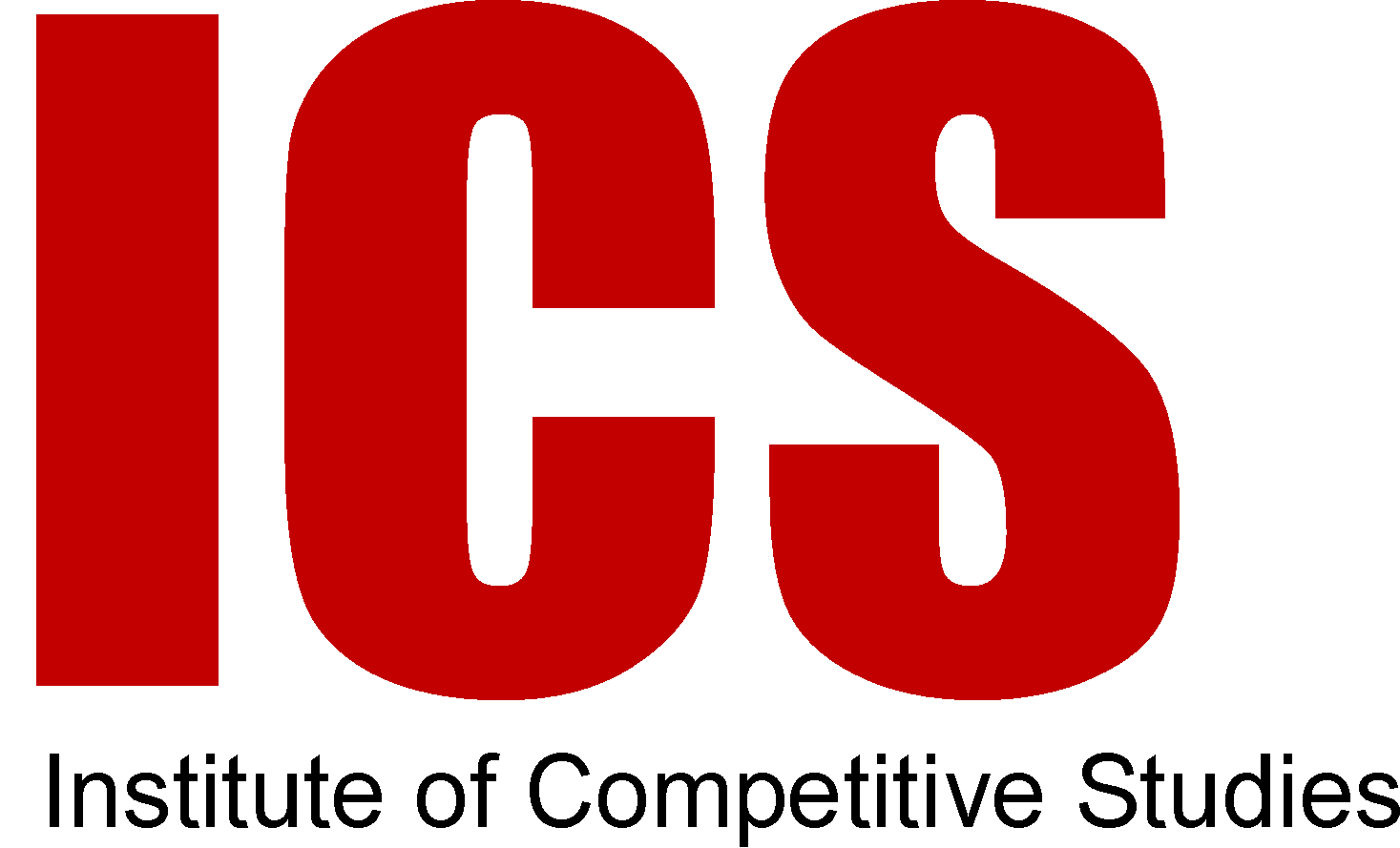National Association of Securities Dealers Automated Quotations (NASDAQ) :-
Owned and operated by the NASD, NASDAQ is the computerised network that provides price quotations for securities traded over the counter as well as many listed securities.
NATIONAL INCOME :-
A measure of the MONEY value of the total flow of goods and services produced in an economy over a specified period of time.
National Financial Switch- an apex switch to facilitate connectivity between the corporate community and the banking and financial sectors.
Net Asset Value (NAV) :-
The total assets of an organisation less all liabilities and all capital charges (including debentures, loan stocks and preference shares). It is called the shareholder's equity or the net worth of the organisation. The net asset value per share is the NAV divided by the total number of ordinary shares issued.
NET NATIONAL PRODUCT :-
Gross National Product less Depreciation.
NET NATIONAL PRODUCT (NNP) :-
The gross national product less capital consumption (i.e. depreciation) during the period. NNP is therefore equal to the national income, i.e. the amount of money available in the economy for expenditure on goods and services. However, NNP cannot be considered a very accurate measure, as it is difficult to calculate depreciation reliably.
Non-Convertibie Debentures (NCDs) :-
A debenture without any convertibility feature; hence it is alternatively termed, 'Straight Debenture'.
Non-Performing Assets (NPAs) :-
Non-Performing Assets emerge out of the credit facilities provided by a bank that are not effectual in generating income. It is an overdue for a period of 90 days (effective from March 2004) on one account. It is a period within which interest or installment of principal amount is not paid back. NPAs, also known as bad loans generally result out of sickness in industrial and agricultural sector, affect the profitability of the financial structure. According to a recent guidelines by the RBI, banks are required to reduce their NPAs level to 3 per cent to be able to declare dividends.
Non-Resident External (NRE) Accounts :-
These are Indian rupee accounts held by Non-Resident Indians (NRIs), which can be maintained as savings bank or current bank account or term deposits. These accounts can be held jointly with another NRI. One NRI can authorise a resident to operate the account for all local payments except gifts, in these accounts, the principal and interest can be taken abroad. Interest earned on these deposits is tax free.
Non-Scheduled Bank :-
Those banks which are not included in the list of scheduled banks are called non-scheduled bank. They have to follow Cash Reserve Ratio (CRR) condition. But they can have these funds with themselves i.e. no compulsion to deposit it with RBI. They are not eligible for having loans from the RBI for meeting day to day general activists but under emergency conditions these banks can be granted loans by RBI. In the early 1990s, there were about 272 reporting scheduled banks and 4 non-scheduled banks. But, at present there are only 3 non-scheduled banks only 1 non-scheduled bank and 302 scheduled banks-March 1999.
Non-Tariff Barriers :-
These are obstructions to import/export other then duties. Non-Tariff Barriers include environmental standards, use of child labour, quality norms, unrealistic specialisation etc.
OPEN ECONOMY :-
An economy in which a significant percentage of its goods and services are traded internationally. The degree of openness of an economy usually depends on the amount of overseas track in which the country is involved or the political policies of its government.Thus the UK economy is relatively open, as the economy is significantly dependent on foreign trade, while the US economy is relatively closed as overseas trade is not very important to its economy.
OPEN MARKET OPERATION :-
The purchase or sale of securities by the Central bank to influence the supply of funds in the cac la market and so interest rates and the volume of credit.
Option :-
The right to buy or sell a fixed quantity of a commodity, currency, security etc., at a particular date at a particular price. An option to buy is known as call option; an option to sell is called a put opt on
Outcome Budget :-
An Outcome Budget measures the development outcomes of all Government programmes.A progress report of different projects of Ministries and departments. In other words it is a means to develop a linkage between the money spend by a Government and the results which follow. An Outcome Budget is an exercise of converting the financial outlays into physical outcomes, with fixed quarterly measurable and monitorable target, to improve the quality of implementation of developmental programmes. The exercise is a joint effort of the Finance Ministry and the Planning Commission. A new division called the Programme Outcome and Response Monitoring Division has been created within the Planning Commission to co-ordinate the initiative.
OVER-THE-COUNTER MARKET (OTC MARKET) :-
A market in which shares are bought and sold outside the jurisdiction of a recognised s:::-exchange; it was originally so named in the 1870s, from the practice of buying shares ove- encounters in the U.S.A.
Overdraft :-
Overdraft is a facility with a bank enabling a depositor to overdraw on his or her current account upto a specified limit.
PAID-UP CAPITAL :-
Capital acquired by selling shares to investors, as distinguished from capital accumulated from earnings or from secured or unsecured loans.
Participatory Notes (PNs) :-
Participatory Notes (PNs) are a derivative instrument issued by the Flls to their overseas clients, who are not registered with the Indian regulators.
Participants who trade in the commodity derivatives markets can be classified as:
Hedgers: They use the futures market to eliminate this price risk, e.g. farmers, producers, consumers, etc.
Speculators: They wish to bet on the future movements in the price of an asset.
Arbitrageurs: They work at making profits by taking advantage between the prices of the same product across the markets.
Investors:-
They work with a long-term horizon in mind.
Perquisites :-
Perquisites are gains or profits made by an employee in addition to the normal salary or wages earned. These can be earned in cash or in kind and the compensation package mentioned by the employer.
Precautionary :-
Reserve Bank's reserves are characterised primarily as a last resort stock of foreign currency for unpredictable flows, which can classified as a precautionary motive.
Press Note 18 :-
The Union Government has abolished the contentious Press Note 18 pertaining to foreign financial or technical collaboration under the automatic approval route. In the new dispensation, new Joint Ventures (JVs) and collaborations will have to be based on the free will of partners without any Government interference, while existing JVs will continue to be protected by a few provisions of the Press Note 18. Even in the case of existing JVs which attract Press Note 18 provisions, venture capital funds have been exempted from the requirement of having to obtain a no-objection certificate from local partners for new investments. Similar freedom has been extended to sick companies and JVs where both warring partners do not hold at least 3 per cent stake. Press Note 18 has been superseded by Press Note 1 of 2004 which will guide approvals for JVs, technical collaborations for companies which already have a tie-up in India.
Prime Lending Rate (PLR) :-
Prime Lending Rate is the rate of interest that is charged by the commercial banks and financial institutions to their prime or most credit-worthy / high networth borrowers. The PLR is calculated by considering the cost of funds and competitive lending rates by different institutions, administration expenses a minimum margin to cover regulatory requirements of provisioning, capital charge and a reasonable profit margin. In addition, different rates are charged for loans having varied maturity period. PLRs are the bench mark deciding the rate of interest to be charged to other borrowers.
Primary Deficit :-
Primary deficit arises due to the interest payment obligation over and above the fiscal deficit (Total expenditure - Total receipts) i.e. Primary Deficit = Fiscal Deficit Interest payment. This figure shows the amount of borrowing done by the Government to service the existing loans.
PRIMARY MARKET :-
A market for new issues of shares, debentures and bonds, where investors apply directly to the issuer for allotment and pay application money to the issuer's account. Distinguished from the secondary market, where investors buy listed shares on the stock exchange through brokers.
Privatisation :-
Privatisation is a process wherein the ownership of a Government-owned entity gets transferred to private enterprise. The transfer of ownership can be for the entire undertaking or part of it. The process of privatisation through share offers to the general public is also called as denationalisation.
Purchasing Power Parity (PPP) :-
Purchasing Power Parity refers to the purchasing power of one currency in its home economy at par with other currency's purchasing power. Here, the exchange rate does not affect the purchasing power. PPP is thus quality-specific. For e.g - as per rupee-dollar exchange rate $1=say Rs.45. A product priced at $1 in USA, might be available in India for Rs.10 and not necessarily for Rs.45. Thus, as per the PPP rate, India's GDP value is almost 4 times higher than if measured by the standard market rate of exchange. Parity between two currencies at a rate of exchange that will give each currency exactly the same purchasing power in its own economy.
Qualified Institutional Buyer (QIB) :-
Qualified Institutional Buyer (QIB) are those institutional investors who are generally perceived to posses expertise and the financial muscle to evaluate and invest in the capital markets.
Quantitative Restrictions (QRs) :-
A policy measure at the disposal of an economy by which it seeks to regulate the inflow (or outflow) of imports (or exports) within its domestic frontiers. Various QRs in vogue are: quota, licensing etc.
Real Interest :-
Real interest rate is the rate derived by deducting the inflation rate from the nominal interest rate.
Real Time Gross Settlement (RTGS) :-
Real Time Gross Settlement is a large value funds transfer arrangement. It effects final settlement of inter-bank funds transfer continuously throughout the business day on a transaction by transaction basis. Inter bank funds transfer are considered final, in the sense that they are irrevocable and unconditional, only when the transfer of balances takes place on the books of the Central bank, RTGS completely eliminates settlement risk (counter party credit risk) by ensuring payment v/s payment or delivery v/s payment on a gross individual transaction by transaction basis. Following types of transaction are handled by the system; (a) Inter-lnstitutional, (b) Customer payments, (c) Delivery v/s Payments (example, security settlements) and (d) Multilateral net settlements.
Real Effective Exchange Rate (REER) :-
Real Effective Exchange Rate it takes into account the relative inflaton rates as between countries to decide whether a currency is overvalued or undervalued.
RECESSION :-
A slowdown or fall in the rate of growth of gross national product. A severe recession is called a depression. Economy growth usually follows a cycle from boom to recession and back again (known as the business cycle). Recession is associated with falling levels of investment, rising unemployment and sometimes falling prices.
Rematerialisation :-
Rematerialisation is the process by which a client can get his electronic (dematerialised) holdings converted into physical (paper) certificates.
Repo :- Repo is a contract in which the seller of securities agrees to buy them back at a specified time and price. It is also called re-purchase agreement or buyback. The RBI uses the repo window to infuse liquidity into the banking system. Banks avail of liquidity from the RBI and in exchange give Government securities to the central bank. Banks pay interest to RBI on the liquidity availed.
Reverse Repo :-
The Reverse repo is purchase of securities with an agreement to resell them at a future date for a higher price. It is also called reverse re-purchase agreement. The RBI uses the reverse repo window to absorb excess short-term liquidity from the banking system. Banks park their short-term liquid funds with the RBI and in exchange receive Government securities from the central bank.
Repo Rate :-
Repo Rate also known as the 'Repurchase Agreement' is the rate at which the seller of security raises short-term funds from the market with an agreement of buying back the same at a specified future date for a specified price. For e.g. RBI raising funds from the market by selling short-term securities to the banks, with a commitment to by those back at a future date for a specific price. This function is known as Reverse Repo from the buyer's (say banks) point of view. The short-term securities on trade include- Treasury Bills, Money Market instruments etc.
Reflation :-
Reflation is a situation where the price rise is done deliberately to relieve the economy from depression.
Reverse Mortgage :-
A reverse mortgage product is one where a senior citizen can mortgage his or her property and receive either a lump sum or regular instalments from the lender. This can be either for a fixed period or untii the time the senior citizen dies. After the fixed period or the demise of the senior citizen, the bank or the lender gets to recover its loan by selling the property.
Reserve Adequacy :-
These are certain indicators for determining the adequate level of reserves for an economy. These indicators aim to determine the extent of external vulnerability of a country and the capabiiity of reserves in minimising these vulnerability. These indicators are:
Import Adequacy: The number of months that can be financed by the reserves held by the country.
Debt Adequacy : The ability of reserves to cover external payment obligations particularly short-term debt liabilities. This is measured by the ratios of reserves to total external debt and short-term debt.
Monetary Adequacy : The extent of capital flight that can occur in the event of a financial crisis. This is measured by the ratio of reserves to broad money and reserve money.
Revenue Deficit :-
Revenue Deficit is the deficit emerging out of excess of Revenue expenditure over revenue receipts. Revenue Deficit = Revenue receipts - Revenue expenditure. Revenue receipts include receipts from tax and non-tax revenue including grants, where as revenue expenditure is made towards interest payment, subsidies, salaries, pension etc.
REVALORISATION OF CURRENCY :-
The replacement of one currency unit by another. A Government often takes this step if a nation's currency has been devalued frequently or by a large amount.
RISK CAPITAL (VENTURE CAPITAL) :-
Capital invested in a project in which there is a substantial element of risk, especially money invested in a new venture or an expanding business in exchange for shares in the business. It is not a loan.
Rolling Settlement :-
Rolling Settlement is a practice in vogue in the capital markets around the globe, wherein the settling of a transaction takes place within a specific period after the trade is agreed. Under the process all transactions related to payment/delivery are settled on a specified day. The procedure brings in certainty of trades, reduces risk and delay in settlement. In India, the Securities and Exchange Board of India (SEBI), the market regulator has introduced T+1 system where trades of a given date settles on the next date.
Scheduled Bank :-
Those banks which have been included in the Second Scheduled of the Reserve Bank of India
(RBI) Act, 1934 are knoen as Scheduled Banks. They must fulfill two conditions:
(i) The paid up capital and collected funds of banks should not be less than Rs.5 lakh.
(ii) Any activity of bank will not adversely affect the interest of depositors. Every scheduled bank
enjoys following facilities -
(i) Eligible for obtaining debts/ioans on bank rate from the RBI.
(ii) Acquires the membership of the clearing house.
SECONDARY MARKET :-
A market in which existing securities are traded, as opposed to a primary market, in which securities are sold for the first time. In most cases a stock exchange largely fulfils the role of a secondary market, with the flotation of new issues representing only a small proportion of its total business. However, it is the existence of a flourishing secondary market, providing liquidity and the spreading of risks, that creates the conditions for a healthy primary market.
Security :-
Any document that proves ownership of stock, bonds and other investments.
Securitisation :-
Securitisation is a financial technique that transforms loans into securities. Three parties are involved in the process, viz. the lending institutions, an intermediary also known as Special Purpose Vehicle (SPV) that holds loans and issues paper against the securities and the investor in the securities. The proceeds from the issue of securities go to the lending institution, the periodic interest and the principal are collected by the SPV and passed through to the security holders.
Sensex :-
The Stock Exchange Sensitive Index (popularly referred to as the SENSEX) reflects the weighted arithmetic average of the price relative to a group of shares included in the index of sensitive shares. For example. Bombay Stock Exchange Sensitive Index is a group of 30 sensitive shares.
Share :-
Share is an equity instrument floated by companies to raise capital from the market. A share can be of two types Equity Share and Preference Share. An equity share, also known as STOCK represents the ownership right in a company, thus extending the voting right as well to the investor. Capital is raised through 'public' issue or bonus share. Equity Shareholders are also known as 'residual owners', as their claim on the company's earning and assets in case of a liquidation, comes after meeting repayment, interest obligations (say-interest to debenture holders) and dividends to Preference Shareholders. Preference Share is also known as 'hybrid securities' share as it carries the features of a bond and an equity share. It carries a stipulated interest rate to be paid over the maturity. Preference Shareholders normally do not have the voting rights in a company. But in cases, where dividends are not paid for a longer time, those shareholders do enjoy the voting right. Preference Share can be cumulative as well as non-cumulative. 'Participating' preference shares provide a specified minimum dividend as well as a share in the profit available to equity shareholders. The Government of India's decision of tax exemption on dividend income also extends to dividend income from preference shares.
Short-Selling :-
Short-Selling is the opposite of buying stocks- it entails the selling of shares that the seller does not own in the hope that the price will fall. If, after a period of time the stock price declines, they can close out the position by buying the stock in the open market at the lower price and return the stock to the broker, making a net profit in the bargain.
Soft currency :-
Soft currency is a currency where exchange rate tends to fall because of persistent Balance-of-payments (BoP) deficits or because of the building-up of speculative selling of the currency in expectation of a change in its exchange rate. A currency whose exchange rate is tending to fall because of persistent balance-of-payments deficits or because of the building up of speculative selling of the currency in expectation of a change in its exchange rate. Governments are unwilling to hold a soft currency in their Foreign exchange reserves. The softness of sterling in 1976 and the consequent unwillingness of Governments to hold sterling balances led to sterling crises and the need for the currency to be supported by borrowing from the international Monetary Fund.
Solvency Ratio :-
The ratio'of a bank's own assets to its liabilities.
Special Drawing Rights (SPRs) :-
The Special Drawing Right (SDR) is a form of international reserve assets, created by the IMF (in 1967), whose value is based on a portfolio of widely used currencies.
Special Purpose Vehicle (SPV) :-
A Special Purpose Vehicle (SPV) is a tool for financial engineering, a means to obtain a sound contracting. An SPV is a firm with legal backing where every action of the firm is defined by pre-specified contracts.
Stagflation :-
Stagflation indicates the prevalence of inflation along with stagnation or recession in the economy. A situation in which rapid inflation is accompanied by stagnating or declining output and employment.
Statutory Liquidity Ratio (SLR) :-
Statutory Liquidity Ratio is the percentage of the total assets of the commercial banks to be kept statutorily with the RBI. This reserve is maintained in the forms of cash, Government securities and gold. The current SLR rate is 25 per cent.
STOCK EXCHANGE (stock market) :-
A market for the sale and purchase of securities, in which the prices are controlled by the laws of supply and demand. The first stock exchange was in Amsterdam, wherein in 1602 shares in the United East India Company could be traded. Their basic function is to allow public companies, governments, local authorities and other incorporated bodies to raise capital by selling securities to investors. They perform valuable secondary functions in allowing those investors to buy and sell these securities, providing liquidity and reducing the risks attached to investment. Outside the UK and English-speaking countries, a stock exchange is usually known as a bourse.
Subsidy :-
Subsidy is a payment in cash form made by the Government to suppliers or producers of goods and services in order to enable them to sell their products at a lower level or at par with the value of their production. Subsidies are also given in kind form ,viz. fertilisers to farmers.
Sunrise Industries :-
The Sunrise Industries are the growth industries in an economy that may become leaders in the market in the future.
Sweat equity :-
Sweat equity refers to equity shares given to the company's employees on favourable terms, in recognition of their work. Sweat equity usually takes the form of giving options to employees to buy shares of the company, so they become part owners and participate in the profits apart from earning salary. The Companies Act defines sweat equity shares as equity shares issued by the company to employees or directors at a discount or for consideration other than cash for providing know-how or making available rights in the nature of intelligence property rights or value additions. Employees Stock Ownership Plan (ESOP) is how the sweat equity may often operate. The ESOP is one in which a company contributes to a trust fund that buys stock on behalf of the employees. The plan also refers to a basket of instruments and incentive schemes to motivate, reward, remunerate the employees of a company. As far as India is concerned, there are two different guidelines for different categories of sweat equity. The first is the Unlisted Companies (Issue of Sweat Equity Shares) Rules. The second is called the Securities and Exchange Board of India (SEBI) (Issue of Sweat Equity) Regulations 2002 for the issue of sweat equity by listed companies. Under the Companies Act, the Section 79A deals with the issue of sweat equity. The issue of sweat equity has to be authorised by a special resolution passed by the company, only one year after the company has commenced business. The company shall not issue sweat equity shares for more than 15 per cent of the total paid-up equity share capital in a year or shares of the value of Rs.5 crore, whichever is higher, except with the prior approval of the Central Government.
Takeover :-
It refers to a transfer of controlling interests of a firm, either through a friendly acquisition or through a hostile bid (through a public tender).
Third- Party Administrators (TPAs) :-
The third party administrators are the middleman in the healthcare delivery chain, which links physicians, hospitals clinics, home health, long-term care facilities and pharmacies.
Trade Cycle :-
Trade cycle or 'business cycle' as it is also known comprises of four important phases that an economy faces. These four phases are- Recession, a condition where the functioning of the economy slows down with lower investment, lower output, lower employment and lower income. Depression the highest form of recession, the economy touches the stagnancy level. Recovery followed by Revival takes the economy out of stagnancy with more of public investment and reflation -like situation.
TRANCHE :-
(french: slice) A part or instalment of a large sum of money. In the International Monetary Fund the first 25 per cent of a loan is known as the reserve (formerly gold) tranche. In tranche funding, successive sums of money become available on a prearranged basis to new company, often linked to the progress of the company and its ability to reach the targets set in its business plan.
Treasury Bills :-
These are instruments for short-term borrowing by the Government. The Bills are promissory notes to pay to the bearer after the maturity period. The Bills are issued by tender to the Money Market and to Government Departments. Tenders are invited every week from bankers, discount houses and brokers. The Bills provide the Government with a highly flexible and relatively cheap means of borrowing money to meet its fluctuating needs for cash.
ULIP :-
A Unit Linked Insurance Plan (ULIP) is one in which the customer is provided with a life insurance cover and the premium paid on it, is invested in either debt or equity products or a combination of the two. In other words, it enables the buyer to secure some protection for his family in the event of his/her untimely death and at the same time provides him/her an opportunity to earn a return on the premium paid.
Underwriters :-
Underwriters are people who study the applications and identify and calculate the risk of loss from policyholders.
VAT:-
It is a multi-point sales tax and is collected on value addition only at each stage. The concept is akin to excise duty paid by the manufacturer who in turn, claims a credit on input taxes paid. Excise duty is on manufacture while VAT is on sale and both work in the same manner, according to the white paper on VAT released by Finance Minister, P.Chidambaram. VAT will be paid along with monthly returns. Credit will be given within the same month for entire VAT paid within the State on purchase of inputs and goods. Credit thus accumulated over any month will be utilised to deduct from the tax collected by the dealer during that month. If the tax credit exceeds the tax collected during a month on sale within the State the excess credit will be carried forward to the next month. Over 550 items will be covered under the new tax regime, of which 46 natural and unprocessed local products will be exempt from VAT. The biggest benefit of VAT is that it could unite India into a large common market. This will translate to better business policy. Companies can start optimising purely on logistics of their operations and not on based on tax-minimisation. VAT is levied on value added at different stages of production and distribution of a commodity or the supply of a service not meant for exports.
Value at Risk (VaR) :-
It is a measure of risk that indicates the maximum amount of loss that an entity such as a bank may incur at a certain point in time.
Venture Capital :-
The long-term financial assistance to projects being set up to introduce new products / inventions / innovations or to employ or commercialise new technologies. It is, therefore, also known as 'Risk Capital'.
Vote-on-Account :-
A Vote-on-Account is sanction of the Parliament for withdrawal of money from the Consolidated Fund of India (CFI) and for specified expenditure. Appropriation Bill is the technical name for it. A vote-on-account pertains only to the expenditure side of the Government's Budget. The annual Budget on the other hand spells out both the manner in which the money is to be spent and how it is to be raised.
Whistleblowers :-
Whistleblowers are insiders who go public, usually at great risk to their careers and sometimes totheir lives, on such things as corruption and malpractice in the organisation they are employed in.
White Knight :-
The White Knight is a term used in a hostile takeover context, when a company, which cannot prevent a takeover, looks for a friendly rescuer who might outbid the black knight and acquire the company on amicable terms. A hostile takeover is a takeover of a company by an individual or a group or another company, which does not approve of the management of the target company or its corporate philosophy.
White Paper :-
A statement, printed on white paper, issued by the Government for the information of the Parliament.
Wholly-Owned Subsidiary (WOS) :-
A subsidiary whose parent company owns virtually 100 per cent of its common stock.
Wholesale Price Index (WPI) :-
Wholesale Price Index is the ratio of average current prices of goods in the wholesale trade to the average base year price.
World Trade Organisation (WTO) Box :-
Amber Box :
It constitutes all forms of domestic support deemed to be trade distorting, primarily by encouraging excessive production. A market price support mechanism that sets no production limit will fall into the amber box.
Blue Box :
Blue box subsidies are less trade distorting because while they directly link production to subsidies, they also set limits on production, for instance,by way of quotas.
Green Box :






EmoticonEmoticon